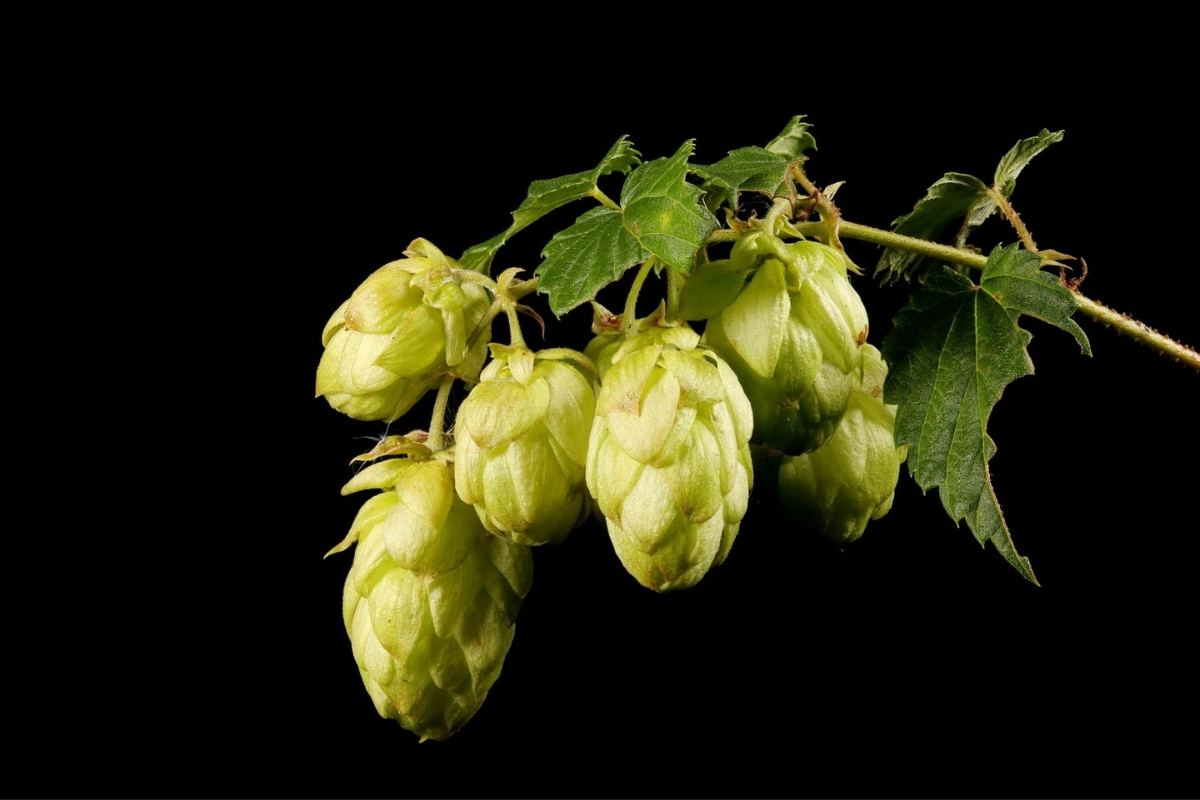
Humulus lupulus, commonly known as hops, is more than just a key ingredient in beer. Did you know that hops belong to the Cannabaceae family, making them relatives of hemp and marijuana? These climbing plants have been used for centuries, not only in brewing but also in traditional medicine. Hops are known for their bitter flavor, which balances the sweetness of malt in beer. They also act as a natural preservative. Beyond brewing, hops have been used to treat anxiety, insomnia, and even digestive issues. Curious about more fascinating facts? Keep reading to uncover 25 intriguing details about this versatile plant!
What is Humulus?
Humulus, commonly known as hops, is a genus of flowering plants in the Cannabaceae family. These plants are best known for their use in brewing beer, but they have a variety of other interesting characteristics and uses. Let's dive into some fascinating facts about Humulus.
Historical Background
Humulus has a rich history that dates back centuries. Here are some intriguing historical facts:
- Ancient Use: Hops were first used in brewing by the ancient Babylonians around 2000 BCE.
- Medieval Medicine: During the Middle Ages, hops were used for their medicinal properties, believed to treat insomnia and anxiety.
- Beer Preservation: In the 9th century, hops were added to beer not just for flavor but also to act as a preservative.
Botanical Characteristics
Humulus plants have unique botanical features that make them stand out. Here are some key points:
- Climbing Vines: Humulus plants are perennial climbers, often growing up to 20 feet in a single season.
- Distinct Leaves: The leaves are heart-shaped with three to five lobes, making them easily recognizable.
- Dioecious Plants: Humulus plants are dioecious, meaning they have separate male and female plants.
Cultivation and Growth
Growing Humulus requires specific conditions and care. Here are some facts about their cultivation:
- Optimal Climate: Hops thrive in temperate climates with long daylight hours.
- Soil Requirements: They prefer well-drained, sandy loam soil rich in organic matter.
- Water Needs: Consistent watering is crucial, especially during the growing season.
Uses in Brewing
Humulus is most famous for its role in brewing beer. Here are some interesting facts about its use in brewing:
- Flavoring Agent: Hops add bitterness, flavor, and aroma to beer.
- Varieties: There are over 80 varieties of hops, each imparting different flavors and aromas.
- Alpha Acids: The bitterness in hops comes from alpha acids, which are released during the brewing process.
Medicinal Properties
Beyond brewing, Humulus has several medicinal properties. Here are some notable ones:
- Sedative Effects: Hops have natural sedative properties, often used in herbal teas to promote sleep.
- Anti-inflammatory: They contain compounds that have anti-inflammatory effects.
- Antioxidants: Hops are rich in antioxidants, which help combat oxidative stress in the body.
Economic Importance
Humulus plays a significant role in the economy, particularly in regions where beer production is prominent. Here are some economic facts:
- Global Production: The largest producers of hops are the United States, Germany, and China.
- Market Value: The global hops market is valued at over $1 billion annually.
- Employment: Hops farming and processing provide employment to thousands of people worldwide.
Environmental Impact
The cultivation of Humulus also has environmental implications. Here are some facts related to its environmental impact:
- Carbon Sequestration: Hops plants help sequester carbon dioxide, contributing to carbon reduction efforts.
- Biodiversity: Hops farms can support local biodiversity by providing habitats for various species.
- Water Usage: Hops cultivation requires significant water resources, which can impact local water supplies.
Fun Facts
Humulus has some quirky and fun aspects that might surprise you. Here are a few:
- Humulus and Cannabis: Hops are closely related to cannabis, both belonging to the Cannabaceae family.
- Hop Cones: The part of the plant used in brewing is called a cone, which is actually a flower.
- Hop Festivals: Many regions celebrate hop harvests with festivals, such as the famous Oktoberfest in Germany.
- Hop Pillows: In the past, people used to stuff pillows with hops to help them sleep better.
The Final Sip
Humulus, or hops, isn't just for beer lovers. This fascinating plant has a rich history, diverse uses, and surprising health benefits. From ancient medicinal practices to modern brewing, hops have woven themselves into various aspects of human life. They help calm nerves, aid sleep, and even have antibacterial properties. Plus, hops are a key ingredient in creating the unique flavors and aromas in your favorite brews.
Whether you're a gardener, a health enthusiast, or just someone who enjoys a good pint, knowing these facts about Humulus can deepen your appreciation for this versatile plant. So next time you sip on a hoppy IPA or enjoy a soothing herbal tea, remember the incredible journey of hops from field to cup. Cheers to the humble yet mighty Humulus!
Was this page helpful?
Our commitment to delivering trustworthy and engaging content is at the heart of what we do. Each fact on our site is contributed by real users like you, bringing a wealth of diverse insights and information. To ensure the highest standards of accuracy and reliability, our dedicated editors meticulously review each submission. This process guarantees that the facts we share are not only fascinating but also credible. Trust in our commitment to quality and authenticity as you explore and learn with us.
